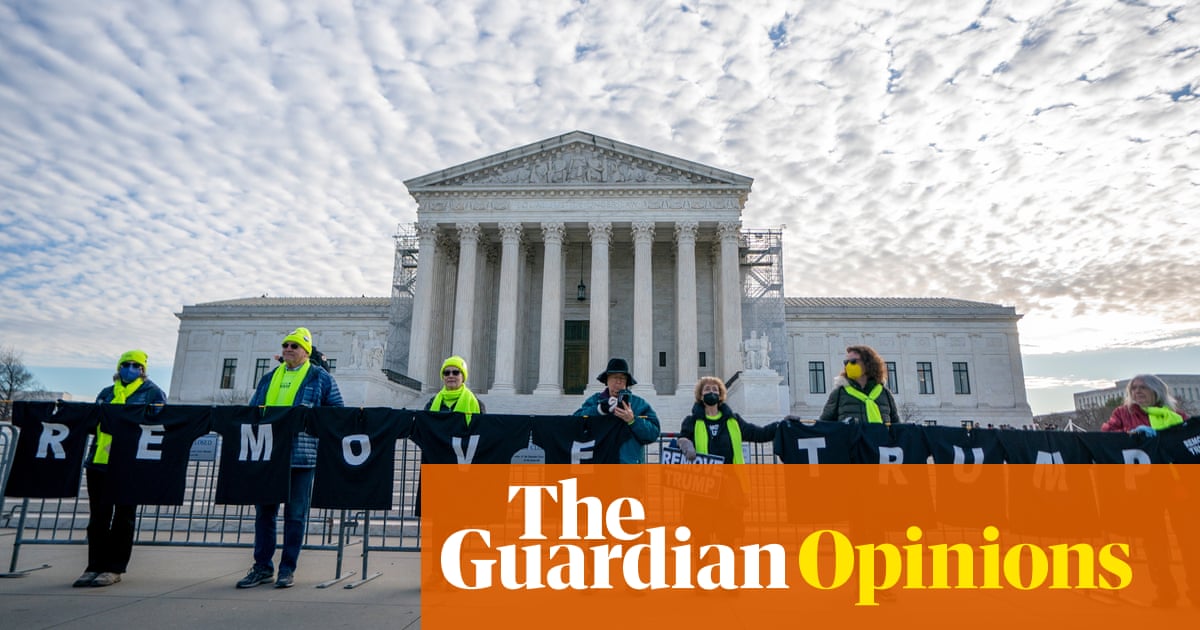The justices, wanting to restore Trump to the ballot, didn’t address the underlying question of if he incited an insurrection
Elena Kagan once referred to Jonathan Mitchell sarcastically as “some genius”. That was in oral arguments surrounding SB8, the bounty-hunter abortion ban that Texas succeeded in passing before the overturn of Roe v Wade, which Mitchell wrote, pioneering a cockamamie scheme for evading judicial review.
Mitchell, a far-right lawyer currently vying for a spot in the second Trump administration, is a fan of this kind of bald, legal bad faith: you can’t quite call him duplicitous, because he never quite pretends that the law really leads him to the conclusions he’d like to reach. He’s more about coming up with novel legal schemes to get to his desired outcome and trusting that the federal judiciary, captured as it is by Federalist Society acolytes and wingnut cranks, will go along with him because they share his political proclivities.
That’s what worked for him with SB8: the supreme court allowed Texas’s abortion ban to go into effect long before Dobbs: not because Mitchell made a convincing argument, but because he offered them an opportunity to do what they wanted to do anyway.
Something similar happened in Thursday’s oral arguments in Trump v Anderson, a question about whether Donald Trump is disqualified from holding federal office under section three of the 14th amendment.



They’re ignoring precedent. Section 3 has been self enacting in the past. This court is illegitimate on its face. Ignoring actual text of the Constitution and precedent makes them illegitimate.